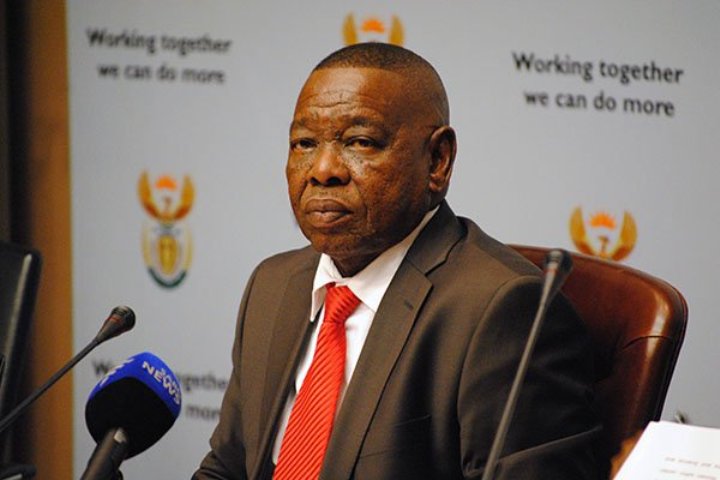Department of Science and Innovation (DSI) Minister, Professor Blade Nzimande, has announced a new programme aimed at fostering cooperation in science, technology, and innovation (STI) between South Africa and Palestine.
"The programme will also have a special focus on supporting the safeguarding, rebuilding, and developing Palestine’s research and innovation capacities and infrastructure," Nzimande explained on Tuesday.
The decision follows a series of collaborations between the two nations, including joint research projects, seed funding for South African-Palestinian knowledge networks, hosting Palestinian scholars and students in South Africa, and sharing South African policy experiences regarding science policy and system development.
Delivering his 2024/25 Budget Vote, Minister Nzimande stated that the programme aligns with the department’s strategic objective of using science diplomacy to foster human solidarity, social justice, and support the country’s foreign policy.
"This new programme will be implemented by our entity, the National Research Foundation (NRF), and will be funded from the department’s existing budget for international cooperation," he told Members of Parliament (MPs).
Vaccines and Budget Adjustments
For the 2024/25 financial year, the department’s budget was adjusted to R10.562 billion from R10.874 billion in 2023/24. Despite the budget cut, Minister Nzimande highlighted significant achievements in science, technology, and innovation over the past 30 years, including the new Vaccine Manufacturing Strategy (VIMS). This strategy aims to promote domestic design, development, and production of vaccines targeting diseases like Rift Valley fever (RVF), human papillomavirus (HPV), respiratory syncytial virus (RSV), and hepatitis B.
Working with the World Health Organisation (WHO), the government has also set up capacity for the local development of mRNA vaccines in response to future Coronavirus threats.
Hydrogen Economy
Minister Nzimande emphasized the department's role in advancing the hydrogen economy, as highlighted by President Cyril Ramaphosa. The DSI is leading major innovations to transition to green hydrogen as an alternative energy source, facilitating a net-zero energy future. In 2023/24, the department invested R53 million to support women-led small, medium, and micro-enterprises (SMMEs) in the hydrogen economy.
Achievements in Solar and Astronomy
A national solar research facility was established to support the Cannabis Industrialisation Masterplan and the Renewable Energy Masterplan. The CSIR graduated 23 SMMEs with two commercial value-added products each. The department also leads advancements in astronomy, particularly with the construction of the Square Kilometre Array (SKA) project, set to become the world’s largest radio telescope array.
Agro-Processing and New Growth Industries
In the 2023/24 period, the department provided 1,480 black emerging farmers with technology development support. Building on past successes, the department remains committed to sustaining businesses in agriculture, manufacturing, and mining, while supporting new growth industries. The Mandela Mining Precinct aims to revitalize mining research and innovation.
Building a Capable State
To build a capable state, the department is establishing an Earth Observation Data Centre to support government decision-making in areas like disaster management, climate change, and water resources management. The government also aims to raise gross expenditure on research and development (GERD) to 1.5% of GDP by 2030/31.
"Despite our challenges, we present this budget as our commitment to transform our National System of Innovation and use science, technology, and innovation to impact the lives of our people in a transformative way," Minister Nzimande concluded.











